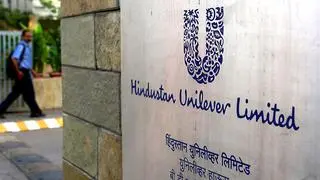Bajaj Auto hopes to wrap up the April-June quarter of this fiscal with sales of around 1.2 million bikes and three-wheelers. Of this, exports are expected to account for five lakh units or a little over 40 per cent of overall sales.
S Ravikumar, President (Business Development), told Business Line in a telephone interview that the objective is to maintain the growth momentum of April through the first quarter. The month saw sales of 4.15 lakh units with exports accounting for 1.85 lakh units.
Assuming an average exports tally of 1.65 lakh units per month for the April-June quarter, this will add up to five lakh units. Bajaj Auto has been seeing an upsurge in its international business thanks largely to the revival of key markets such as Nigeria.
The company declared its fourth quarter results of 2017-18 on Friday where it posted a profit after tax of ₹1,080 crore, up nearly 35 per cent, on a turnover of ₹7,140 crore. The Ebitda (earnings before interest, tax, depreciation and amortisation) margin for the quarter was 20.9 per cent and 20.2 per cent for the whole year.
Bajaj Auto also saw its highest-ever quarterly sales of commercial vehicles (or three-wheelers/autorickshaws) at 1.22 lakh units in the domestic market during January-March 2018. According to Ravikumar, the spurt actually began in the last two quarters of 2017-18 thanks to Maharashtra releasing more autorickshaw permits.
This surge continued into April of the current fiscal and is still on during this month. Three-wheeler sales are expected to settle down to the normal pace from the July-September quarter.
The overall tally in 2017-18 was a record high of 3.69 lakh units for the domestic market (exports totalled 2.68 lakh units) and it will be interesting to see if this will be surpassed during this fiscal.
Rise in cargo segment
“Overall, our three-wheelers are doing well and the diesel/CNG portfolio is starting to kick in nicely,” said Ravikumar. The cargo segment has also been witnessing a sharp rise in market share. It also remains to be seen if other States will go the Maharashtra way and release autorickshaw permits in the coming months.
As for motorcycles, the CT 100 and Platina have been doing steady business in the entry-level segment. The Pulsar continues to keep its lead in the sports category in tandem with the Avenger. Ravikumar said the Dominar 400 has been seeing good numbers in overseas markets which vary from 300 to 600 units each month across the dozen countries it is sold in.
Yet, the big challenge for Bajaj Auto is to crack the executive commuter space which takes up a lion’s share of the 1.6 million two-wheelers sold every month. It is here that Hero and Honda rule the roost in motorcycles and scooters while TVS has been seeing brisk business with its Jupiter scooter.
Bajaj Auto, of course, does not make scooters any longer and has tried in the past to build its presence in the executive commuter segment with brands like the Discover and ‘V’. Earlier this year, it launched the rebooted Discover 110 and 125 where the initial market response has been encouraging. The bigger task on hand is to sustain this growth and then build upon it to be able to take on the market leader.
Other challenges
The other challenge relates to global commodity prices, especially steel and metals, which have been increasing in recent months and becoming an area of concern to the auto industry.
Ravikumar, however, said this was not too much of a worry for Bajaj Auto, which is better insulated thanks to exports, brisk/profitable sales of three-wheelers and higher pricing power with brands like KTM.








Comments
Comments have to be in English, and in full sentences. They cannot be abusive or personal. Please abide by our community guidelines for posting your comments.
We have migrated to a new commenting platform. If you are already a registered user of TheHindu Businessline and logged in, you may continue to engage with our articles. If you do not have an account please register and login to post comments. Users can access their older comments by logging into their accounts on Vuukle.